Posted on 2/27/2026
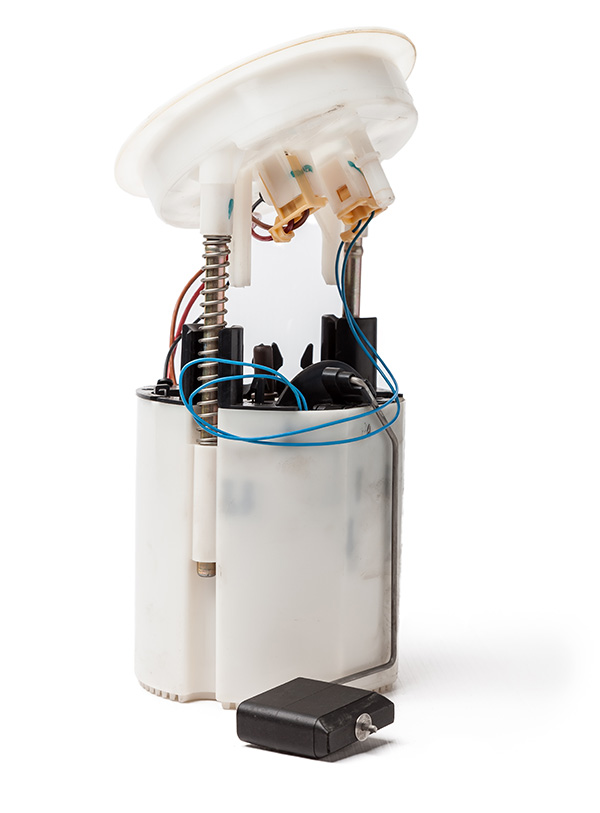
A fuel pump usually fails in a way that feels confusing. The car might start fine one day, then crank a little longer the next. Or it runs normally at a steady speed, but hesitates when you ask for more power. Because the symptoms can come and go, it is easy to blame bad gas or a random electrical glitch. Fuel pump problems also get mixed up with other issues, like ignition or sensor faults, so the fastest way to save money is spotting the pattern early. If you catch it while the pump is still weak instead of dead, you can often avoid a tow and a much longer repair day. What A Fuel Pump Does In Your Car The fuel pump’s job is to deliver fuel at the right pressure and volume, not just to move fuel forward. Modern engines depend on stable pressure so the injectors can meter fuel accurately during starts, idle, and acceleration. When pressure drops, the engine can run lean, stumble, or struggle to start, even if the pump is technically still running. That is wh ... read more
Posted on 1/30/2026
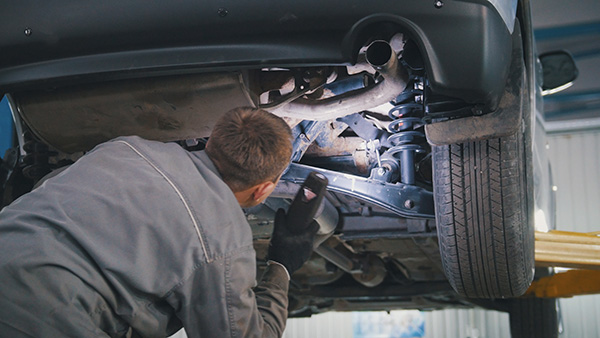
Tire wear is one of those things that sneaks up on you. One day, the tires look fine, and then suddenly the edges are bald, or the tread is choppy and noisy. A lot of drivers assume it’s just cheap tires or bad luck, but in many cases, the suspension is the real reason the tires didn’t stand a chance. When parts get loose or worn, the wheel doesn’t stay planted and aligned the way it should, and the tire pays the price first. Why Suspension Wear Shows Up On Tires Before You Feel It You can have suspension play without obvious clunks or dramatic handling issues. At first, the car still drives, and you might only notice a little drift, a slight vibration, or extra road noise. Meanwhile, the tires are getting scrubbed, cupped, or feathered every time you drive. Road conditions matter too. Rough pavement, potholes, and driveway dips put extra stress on joints and bushings. Once a small amount of play starts, it tends to grow, and tire wear often becom ... read more
Posted on 12/19/2025

A new whining sound from the engine bay can be annoying at first and then hard to ignore. You might hear it when you start the car, when you turn the steering wheel, or when engine speed climbs past a certain point. It usually means a belt, pulley, pump, or bearing is starting to wear out even if the car still drives normally. How Drivers Describe a Whining Noise From the driver’s seat, whining noises usually fall into a few patterns. Some sound like a steady high note that rises and falls with rpm, others come in only at certain speeds or when you switch accessories on. You may notice it most in parking garages, drive-through lanes, or next to walls where sound reflects back at you. Common Sources of Whining Under the Hood The most common culprits include: Serpentine belts that are glazed, loose, or slipping on pulleys Idler and tensioner pulleys with worn bearings Power steering pumps that are low on fluid or internally worn Alternator ... read more
Posted on 11/28/2025

Running out of gas feels like a small mistake, but it can create a surprising chain of problems. Beyond the inconvenience, you risk damaging fuel system parts, clogging filters, and stressing components that expect a steady supply of fuel. Add in safety hazards and towing expenses, and a “quick top-off later” can become a costly day. Here is what really happens when the tank runs dry and how to avoid it next time. Why “Empty” Isn’t Really Empty Most fuel gauges leave a small reserve when the light turns on, but the exact amount varies by vehicle and driving conditions. Highway grades, hard braking, and sharp turns can slosh fuel away from the pickup, starving the engine even when the display says a few miles remain. As the pump begins to gulp air, the engine stumbles, the mixture goes lean, and power drops quickly. That moment of sputtering is your warning that systems upstream are being stressed. Fuel Pump Cooling and Prematu ... read more
Posted on 10/31/2025
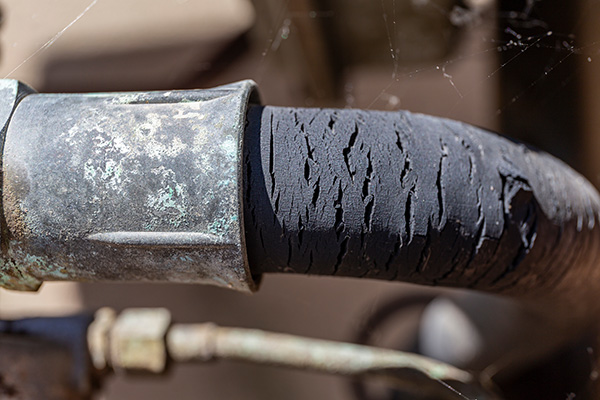
Radiator hoses might not be the flashiest part under your hood, but they play a vital role in keeping your engine from overheating. These rubber hoses carry coolant between the radiator, engine, and heater core, helping regulate temperature and protect internal components. When a radiator hose starts to crack, leak, or swell, it’s only a matter of time before it fails, and that can leave you stranded or facing a serious repair bill. Most of the time, problems with hoses can be caught early with a quick visual inspection and a little pressure testing. Taking a few minutes to check them, especially before a long trip or seasonal temperature swing, can help prevent a lot of hassle later. What Radiator Hoses Actually Do There are typically two main radiator hoses in most cars: an upper hose and a lower hose. The upper hose carries hot coolant away from the engine and into the radiator. The lower hose returns the cooled fluid back to the engine. Together, they form ... read more
Posted on 9/26/2025
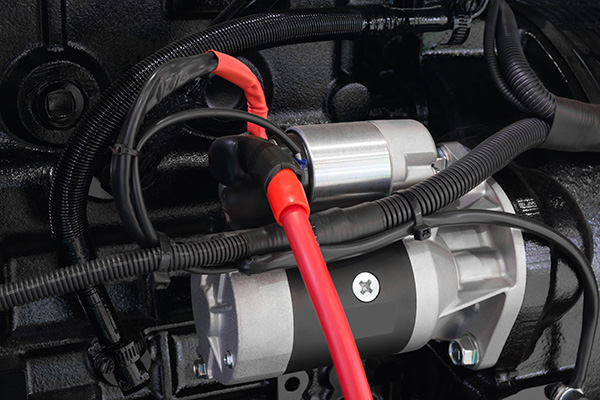
When you turn the key or press the start button, you anticipate your engine to roar to life. But if you hear clicking, grinding, or silence instead, your starter could be in trouble. The starter motor gets your engine running, and when it begins to fail, it often gives subtle warnings before it stops working entirely. Understanding these signs can save you from being stranded and help you avoid unnecessary repairs. How the Starter Works Your vehicle’s starter motor uses electrical power from the battery to crank the engine and start the combustion process. When you turn the key or push the button, the starter engages a gear that meshes with the engine’s flywheel, turning it just enough to begin running on its own. Because the starter draws a large amount of current and uses moving parts under high load, it can wear out over time. Problems with the starter itself, the solenoid, or related wiring can all lead to difficulty starting the engine. C ... read more
Posted on 8/29/2025

Buying a car from a private seller can be a great way to save money—but it also comes with risks. While many sellers are honest, others may try to pass off cars with hidden problems, salvage histories, or even active liens. Knowing what to look for can help protect your investment and your safety. If you’re planning to purchase a used vehicle in Huntington Beach or anywhere nearby, here’s how to avoid falling victim to a private seller scam. Always Ask for the Title and Verify Ownership Before getting too invested in the deal, ask to see the car’s title. Make sure the seller’s name is on it and that there are no liens. A lien means the seller still owes money on the vehicle and does not own it outright legally. If you buy a car with a lien, you could end up responsible for someone else’s debt. Check that the VIN on the title matches the VIN on the car, usually found on the dashboard near the windshield and inside the driver&rsquo ... read more
Posted on 7/25/2025
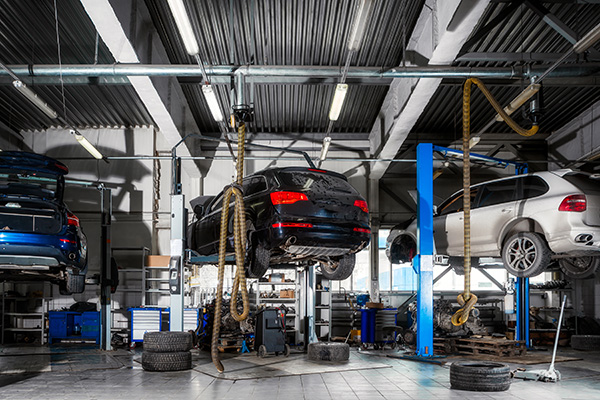
When your car seems to be running fine, it might be tempting to skip a vehicle inspection. After all, if it’s not broken, why fix it? However, regular inspections play a crucial role in keeping your car safe, reliable, and cost-effective to own. By catching problems early and staying ahead of wear and tear, inspections can save you time, money, and stress down the road. Here are five key reasons to schedule a vehicle inspection today. 1. Catch Small Problems Before They Grow Many serious and costly repairs start as small, easily fixable issues. A tiny coolant leak, a worn belt, or a slight brake problem might not seem urgent now, but these can quickly escalate into major failures. Routine inspections help identify these small problems early, allowing you to fix them before they lead to breakdowns or more expensive repairs. Addressing issues proactively keeps your vehicle running smoothly and prevents surprises that could leave you stranded. 2. Improv ... read more
Posted on 6/27/2025
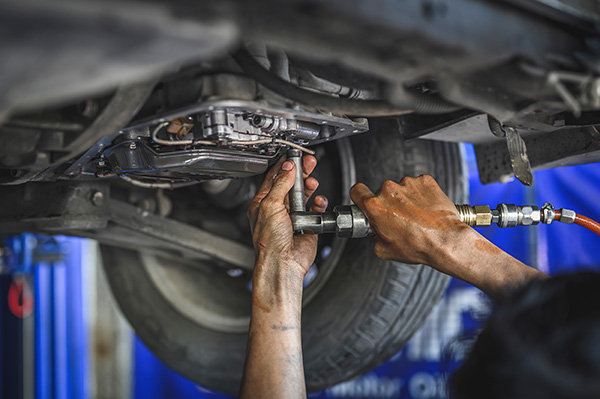
Your vehicle’s transmission is a vital component that controls how power from the engine is delivered to the wheels. To function properly, it relies on clean, well-maintained transmission fluid. Over time, that fluid breaks down and accumulates contaminants, leading many drivers to ask: how often should I get a transmission fluid flush? There isn’t a single answer that applies to every car. The right interval depends on your vehicle’s make and model, your driving habits, and the type of transmission it has. What’s certain, though, is that regular maintenance of this fluid is one of the best ways to extend the life of your transmission and avoid costly repairs. What Is a Transmission Fluid Flush A transmission fluid flush is a service in which all of the old transmission fluid is removed and replaced with fresh fluid. This is different from a fluid change, which only replaces a portion of the old fluid. During a flush, a specialized machine c ... read more
Posted on 5/30/2025
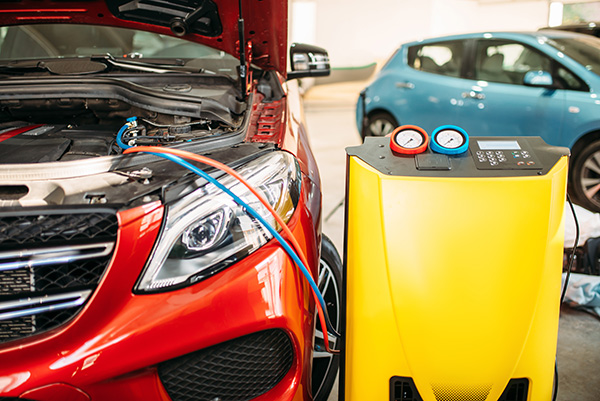
If you’ve had A/C work done on a newer vehicle, you may have heard the term “1234yf refrigerant” come up. It sounds technical, and for many drivers, the difference between 1234yf and the older R-134a refrigerant isn’t immediately clear. But there’s a reason for the switch—and understanding why it matters can help you stay informed when your car’s A/C needs service. So what exactly is 1234yf? Why is it replacing R-134a? And does it change anything for the average driver or how their vehicle gets serviced? A Quick Look at Refrigerants in Automotive A/C Systems Refrigerants are the lifeblood of your car’s air conditioning system. They circulate through the system, absorbing heat from inside the cabin and releasing it outside, keeping you cool even on the hottest days. For years, R-134a was the go-to refrigerant for most vehicles, replacing the ozone-depleting R-12 back in the 1990s. But while R-134a is better for the ozo ... read more